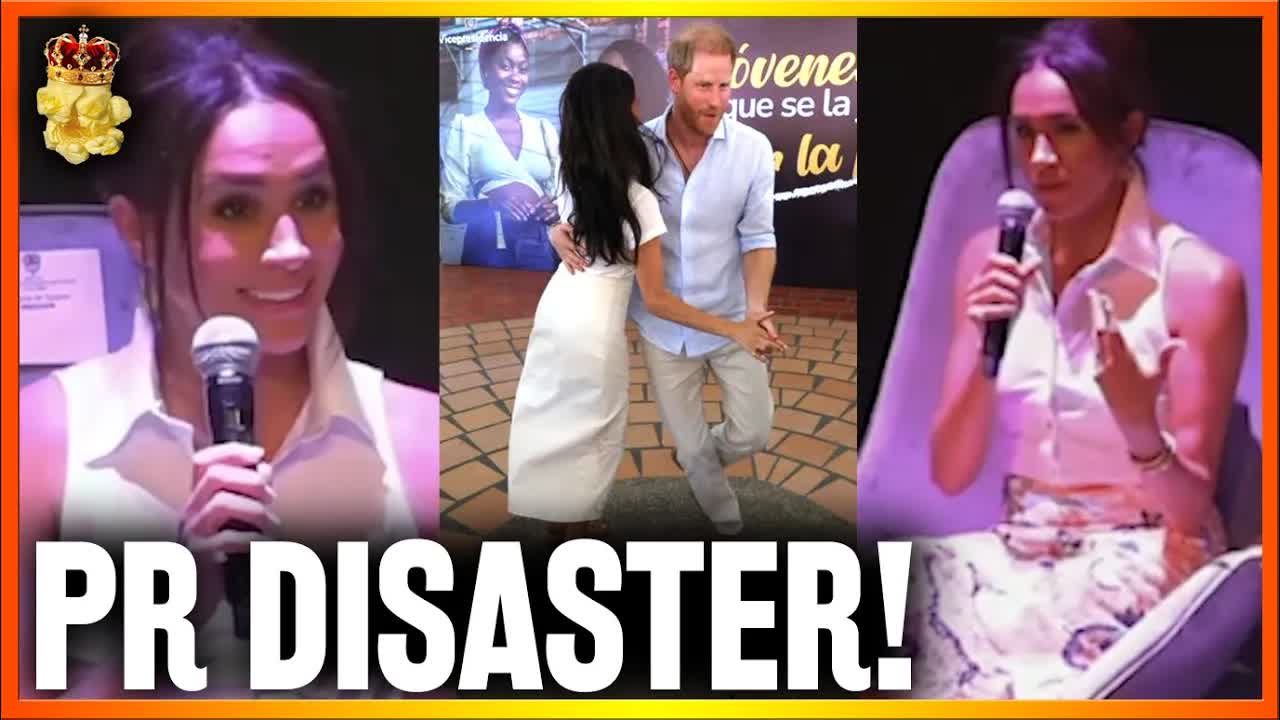The recent Colombian tour by Meghan Markle and Prince Harry has sparked a whirlwind of headlines, not all of them flattering.
While the couple was seen salsa dancing and enjoying themselves, behind the scenes, they appear to have been busy managing their media narrative in a rather questionable manner.
Andy Signor from Popcorn Palace reported that the Sussexes’ press coverage during their visit was tightly controlled.
Bianca Bentoncourt, a digital culture editor at Bazaar magazine, was the sole journalist assigned to cover their trip.
Her bulletins, which were distributed globally, painted the couple in an overwhelmingly positive light.
Critics are raising eyebrows, questioning whether this selection was a way for Meghan and Harry to micromanage their portrayal in the media.
It’s no secret that the couple has often championed press freedom, yet this move seems to contradict that stance.
By handpicking a journalist without a strong news background, they’ve created an impression of censorship.
The glowing reports that emerged from the tour notably omitted any mention of Meghan’s repeated dish soap anecdote—a story that has been widely discredited.
This omission has led many to speculate about their commitment to transparency.
Adding fuel to the fire, when the Daily Mail dispatched its own reporter, Nick Pisa, to cover the tour, it highlighted discrepancies in the stories being told.
Meghan’s recollection of how she influenced a commercial as a child was recounted, but the authenticity of this narrative has been called into question.
Vanity Fair previously included this tale in a profile but later retracted it after fact-checkers could not substantiate it.
Thomas Markle, Meghan’s father, weighed in on the controversy, clarifying that while Meghan did write letters as part of a school project, the idea that she single-handedly changed an advertisement is an exaggeration.
This embellishment has left many wondering why Meghan continues to present this story as a pivotal moment in her life.
The media frenzy surrounding the tour didn’t stop there.
Bentoncourt defended her reporting, stating that her intention was to cater to Bazaar’s audience rather than cover every detail of the events.
However, critics argue that by neglecting to mention Meghan’s retelling of her infamous story, the coverage lacked balance and fairness.
Furthermore, while Meghan spoke about empowering women, she notably omitted any acknowledgment of Princess Catherine, who is currently navigating her own challenges.
This oversight has not gone unnoticed, leading many to question whether Meghan is truly supportive of other women in similar positions.
Despite the criticism, Meghan did showcase some Spanish skills during the tour.
While some online commentators mocked her fluency, others noted that she managed to hold a conversation quite well.
This aspect of her trip provided a rare moment of praise amidst the surrounding controversy.
However, the couple’s salsa dancing video quickly became a focal point of ridicule.
While some found their display endearing, others viewed it as a staged performance for the cameras.
The intimate moments captured were hard to believe as spontaneous, leading to skepticism about the authenticity of their relationship.
As they danced, the couple seemed to be trying to project an image of love and connection.
Yet, many viewers felt this was merely a façade, further complicating the public’s perception of their authenticity.
The media coverage that followed, particularly from outlets like People magazine, only added to the sense that this was more of a publicity stunt than a genuine engagement with the Colombian people.
Critics are also questioning the purpose of their visit.
With allegations that they were used as celebrity figures to distract from local issues, the entire tour has been labeled as a waste of resources.
The significant security expenses incurred during their trip raised eyebrows, especially considering the pressing needs of the Colombian community.
While Harper’s Bazaar focused on Meghan’s fashion choices, many are left wondering about the actual impact of their visit.
The couple’s presence seems to have been more about enhancing their brand rather than contributing meaningfully to the country they visited.
In a world where every move is scrutinized, Meghan and Harry’s Colombian tour has not only highlighted their efforts to control their narrative but has also sparked a debate about the authenticity of their actions.
With so much at stake, the question remains: can they truly balance their desire for privacy with their public personas?










